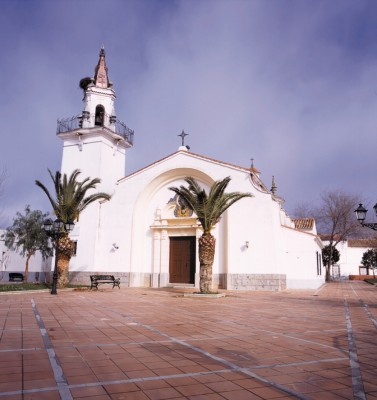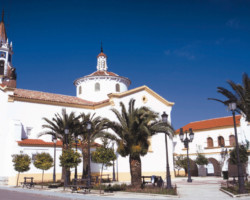The current village of La Granjuela arose during the post-war period, when restoration healed the wounds of ruin and destruction. The current village of La Granjuela arose during the post-war period, when restoration healed the wounds of ruin and destruction. Where buildings had been reduced to rubble, reconstruction led to the erection of small white-washed houses, many of which now boast decorative tiling. The white-washed neo-Baroque belfry of the church keeps watch over this peaceful hamlet village, and provides a nesting site for storks that arrive after the celebrations in honour of San Blas.
- The hamlet is located to the north of the Alto Guadiato.
- Distance from Córdoba: 89 km.
- Altitude: 547 m.
- Surface area: 55.5 km2.
- Population: 501.
- Term used to designate inhabitants: Granjueleños.
- Region: Valle del Guadiato.
Documented for the first time in 1579, La Granja was originally a country estate within the jurisdiction of Fuente Obejuna, which, in the Modern era, achieved independence as a hamlet. Along with the localities of Valsequillo, Los Bláquez and the now perished Los Prados and Esparragosa, La Granja was one of the Cinco Aldeas [five hamlets] between 1817 and 1842, when it achieved administrative independence. The centre of the village was subject to the destructive consequences of the Spanish Civil as it was located on a front.






